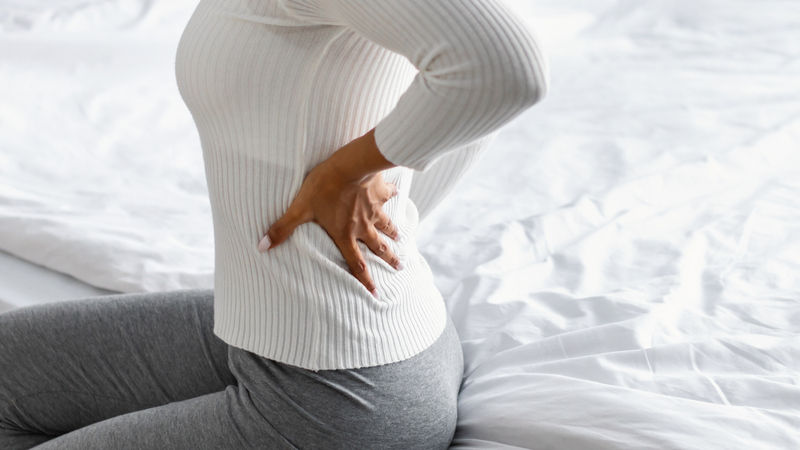
Inflammation and arthritis can be uncomfortable at the best of times, but have you noticed your joint pain is worse while you sleep? If inflammation is affecting your quality of sleep, it’s important to address it as soon as possible to avoid additional issues related to sleep deprivation. So, does inflammation really get worse at night?
Understanding what causes your inflammation and how you can manage or reduce its effects can be instrumental in improving the quality of your sleep and overall health. We look at a few ways you can help reduce how inflammation affects your sleep with these tips.
What causes inflammation?
Inflammation is caused by a chemical response from your body’s immune system to protect it from infections, injuries and toxins. It fights anything your body may be under attack from, sending proteins, antibodies and blood flow to the site. While in the short term, this protection is an advantage, when the inflammation lingers long term the result is painful and uncomfortable. Symptoms can range from fatigue and fever to acute pain. Arthritis is a common cause of inflammation and pain, especially as we age.
How inflammation at night affects sleep and overall health
Inflammation can become more noticeable at night when you are trying to sleep. If you are finding that falling asleep is difficult due to pain, or you’re waking throughout the night, it is worth considering how to improve your sleep situation. The effect of diminished sleep quality can be tough on the body and can cause problems such as fatigue, stomach issues and headaches among other symptoms.
Request a Free Brochure
Simply fill out a quick form and see how we can transform the way you bathe.
You should be getting 7–8 hours of good sleep each night. If you aren’t getting your forty winks, you might be suffering from the signs of sleep deprivation, both physically and mentally. A lack of sleep can reduce our tolerance for pain, affect cognitive function and create new issues for us. If you aren’t getting a decent night’s sleep due to pain or inflammation, it could be creating a vicious cycle that is making it hard for you to find relief.
Ways that you can reduce inflammation whilst you sleep
Use heat therapy
Heat works to relieve inflammation at night by increasing blood flow and makes connective tissue more flexible. It also helps to reduce the build-up of fluid in tissue which is a key cause of inflammation. Opt for a bath before bed, remembering to give yourself time to cool before sleeping, or apply a heat pad to the joints affected by inflammation for 15–20 minutes before bed.
Review your mattress
Mattresses are a big part of good sleep hygiene and should be reviewed and changed roughly every 7–10 years. This could ultimately be a huge factor in why your inflammation is worse at night. A good mattress should be supportive, especially for those with arthritis, however, a mattress that is too hard will quickly become uncomfortable. Short of investing in a new mattress, you may benefit from a mattress topper that will aid a more supportive sleep environment.
Use pillows
Those suffering from arthritis may find using pillows as a wedge next to you or between your knees may help to relieve some of the pain, especially around the hips and knees. For those with arthritis in the neck, choosing a supportive but not too firm or high may provide a more comfortable night’s sleep.
Exercising and stretching
Staying active and keeping your body moving at home is a big factor in reducing joint pain. Joints are meant to be moved and become stiff and painful when immobile for longer periods. Keep as active as possible whether it’s by walking, practising yoga which is great for maintaining muscle tone or swimming which is ideal for those who find weight-bearing exercises painful. Increased range of motion will help ward off pain in your arthritis-affected joints.
Practice good sleep hygiene
A major reason why inflammation does get worse at night is sleep deprivation and fatigue, as it increases stress on the body when we aren’t well rested. Ensure you are implementing a good sleep routine by creating bedtime habits including:
- Going to bed and rising at the same time each day
- Avoid screens at least one hour before you go to bed. Blue light from screens has a big impact on our circadian rhythm
- Limit your daily caffeine intake and avoid caffeine after 2pm
- Avoid large meals within 2–3 hours before bed
- Establish a pre-bed routine that may involve some meditation or relaxing habits that will help calm the mind before sleep
Consider nighttime pain relief
If other alternative methods of relief are not helping or you are still struggling to reduce your pain at night you may benefit from considering some pain relief before bed. It is best to discuss these options with your doctor before taking any medications to find the most suitable option for you.
If you are experiencing better quality sleep, you’ll notice improved mental and physical ability with everyday tasks. By following the tips above, we hope you find a reduction in the effect inflammation is having on your sleep.
If you’re looking for mobility support for you or a loved one in the bathroom, check out our range of walk-in baths and showers. Or, request a free brochure to find out more.
